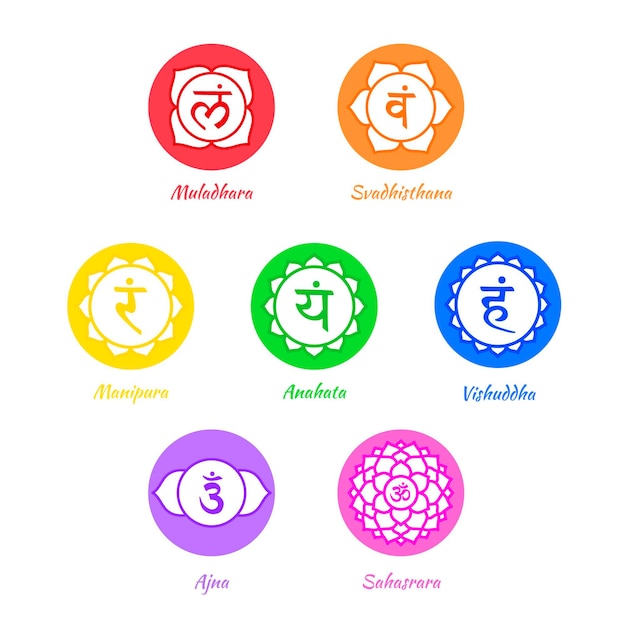

Hinduism is one of the oldest religions in the world, with roots dating back over 4,000 years.
The term Hinduism was coined by outsiders, as there is no specific word for the religion in the Hindu scriptures.
Hinduism encompasses a wide range of beliefs and practices, allowing for diverse interpretations and customs.
Hinduism is a religion that values personal spiritual experience and individual freedom of belief.
Hinduism incorporates concepts such as karma (the law of cause and effect) and dharma (the moral and ethical duties of individuals).
The Vedas, a collection of ancient texts, are considered the most authoritative scriptures in Hinduism.
Hinduism recognizes the existence of multiple gods and goddesses, each representing different aspects of the divine.
Hinduism is characterized by the belief in reincarnation, the cycle of birth, death, and rebirth.
In Hinduism, the ultimate goal is to achieve moksha, or liberation from the cycle of reincarnation.
The cow is considered a sacred animal in Hinduism and is often revered and worshiped.
The Swastika, which is associated with Nazis in Western culture, is actually an ancient Hindu symbol representing good luck and well-being.
Yoga, a popular practice worldwide, originated in Hinduism and is used to achieve spiritual, mental, and physical well-being.
Hinduism is not only a religion but also a way of life, emphasizing morality, ethics, and social responsibility.
Hindu temples are often adorned with intricate carvings and sculptures representing various gods and goddesses.
Diwali, also known as the Festival of Lights, is one of the most significant Hindu festivals celebrated annually.
Over a billion people worldwide identify as Hindus, making it the third-largest religion in the world.
Unlike many other religions, Hinduism does not have a single founder or central religious authority.
The caste system, although not exclusive to Hinduism, has strong ties to the religion and has greatly influenced Indian society.
Hinduism teaches that all life is interconnected, emphasizing the importance of treating all living beings with respect and compassion.
The symbol Om (or Aum) is considered sacred in Hinduism and is often used during prayers and meditation.
The Ganges River is considered holy in Hinduism, and many pilgrims travel to its banks to bathe in its waters.
Hinduism has a rich tradition of storytelling, with epics like the Mahabharata and Ramayana being widely read and retold.
Many Hindu deities have multiple arms, symbolizing their ability to carry out multiple tasks simultaneously.
The Ashram system plays a crucial role in Hinduism, providing a structured way of life for individuals at different stages of their spiritual journey.
Holi, another popular Hindu festival, celebrates the arrival of spring and is known for its vibrant colors and lively celebrations.
The Bhagavad Gita, a sacred Hindu text, is considered a philosophical and spiritual guide.
Hinduism recognizes four primary goals in life: Dharma (righteousness), Artha (prosperity), Kama (pleasure), and Moksha (liberation).
Hinduism has given birth to several renowned saints, philosophers, and spiritual leaders who have contributed greatly to Indian culture and spirituality.
Hindu temples often serve as centers of learning, where people can receive education in various subjects.
The Hindu belief in ahimsa, or non-violence, has influenced other spiritual traditions such as Buddhism and Jainism.
Many Hindus practice vegetarianism or avoid eating beef due to the belief in the sanctity of all life.
Hindu weddings are elaborate and colorful affairs, with rituals and customs that vary from region to region.
The concept of maya in Hinduism suggests that the material world is an illusion, and true reality lies beyond the physical realm.
Hinduism encourages the pursuit of knowledge and wisdom, valuing education and intellectual growth.
Many Hindu rituals involve the use of fire as a symbol of purity and transformation.
Hinduism teaches that there are different paths to salvation, including the path of devotion, knowledge, or selfless action.
The celebration of Navaratri (Nine Nights) honors the mother goddess in her various forms and is celebrated with dance and music.
The festival of Raksha Bandhan celebrates the bond between brothers and sisters, with sisters tying a protective thread (Rakhi) on their brothers’ wrists.
Hinduism views death as a natural part of the cycle of life, with the soul being reborn in a new body after death.
The Sanskrit language, which originated in ancient India, is considered sacred in Hinduism and is used in many religious texts and rituals.
The concept of the third eye, often associated with Hinduism, symbolizes enlightenment and the ability to see beyond the physical world.
Many Hindu rituals and ceremonies are centered around honoring ancestors and seeking their blessings and guidance.
The holy city of Varanasi, situated on the banks of the Ganges River, is considered one of the most sacred places in Hinduism.
Hinduism places a strong emphasis on family and community, with joint families and extended relatives often living together.
The practice of meditation, known as dhyana, is highly regarded in Hinduism as a means to attain spiritual enlightenment.
Around the world, coffee enthusiasts enjoy Monin coffee concentrate since it is a multipurpose product. Conveniently combining…
The Importance of Choosing the Right Shower for Your Bathroom Renovating your bathroom can be…
Usain Bolt holds the record for the fastest 100-meter sprint in history.Bolt was named Sportsman…
Love is in the air... and it smells suspiciously like chocolate!Roses are red, violets are…
Life's a beach, take a picture and relax.Sun, sand, and salty kisses. That's what beach…
Hungary is home to the largest thermal water cave system in the world.The Rubik's Cube…